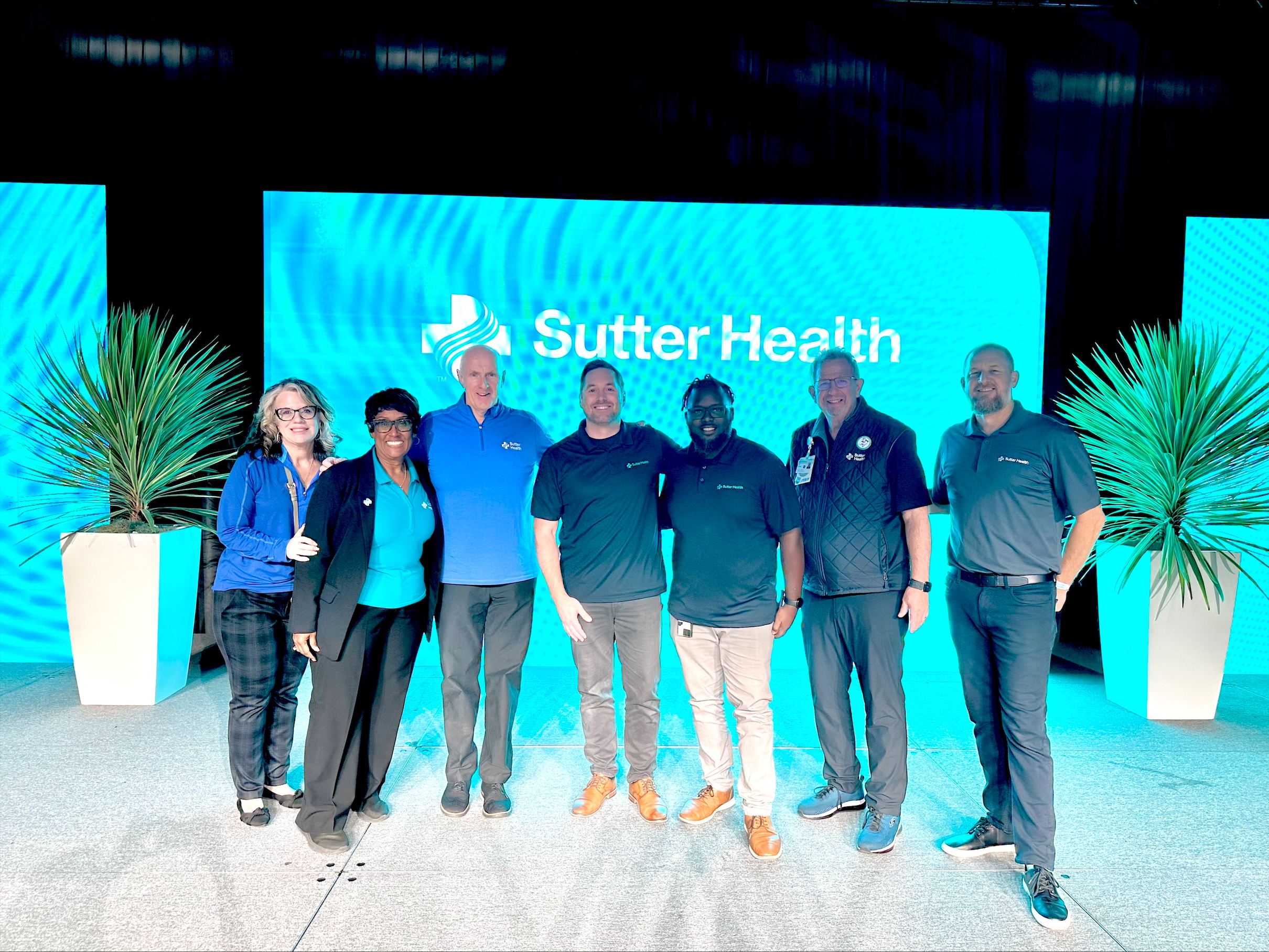For Marsalis Peterson, sound is more than just an auditory experience; it is a force that connects people, drives emotion, and transforms industries. From his early beginnings in a Sacramento church to shaping the way vital healthcare messages are delivered at Sutter Health, Peterson has spent decades mastering the art of audio and visual production. Now, as a Media Technician II, he is blending his passion for sound with healthcare technology, ensuring that critical information reaches the right people at the right time.
Peterson’s journey started in church, where he honed his skills working at multiple congregations, often volunteering just to gain experience. By the age of 8, he was already playing multiple instruments, from piano and saxophone to bass and guitar. That foundation propelled him into mainstream event production, radio, and eventually corporate America.
His deep appreciation for sound led him to explore not just performance but the technical aspects of audio engineering.
“I wanted to know what the knobs did, what the faders controlled,” he recalled.
When he found out his wife was pregnant with their first son, he made a life-altering decision to leave touring behind in favor of stability. He transitioned into nonprofit media work, where he climbed the ranks to Director of Media, before moving on to Intel and then Sutter Health in 2016.
At first, the qualifications for the Sutter Health role seemed daunting, but Peterson took a leap of faith.
“I didn’t think I was qualified,” he admitted. “But I sent in my resume, some of my past work, and got the call.”
Now approaching nine years with the organization, he has evolved within his role, taking on responsibilities that extend far beyond audiovisual maintenance.
The Intersection of Media and Healthcare
At Sutter Health, Peterson plays a crucial role in ensuring seamless communication between leadership, medical professionals, and employees. His team manages audiovisual operations for high-profile events, including Sutter’s Virtual Grand Rounds, which reaches tens of thousands of employees.
“We are the bridge between the CEO, medical specialists, and the rest of the organization,” he explained. “If we don’t get it right, the people who need that information, the doctors, the nurses, the entire healthcare team won’t receive it in the best way possible.”
During the COVID-19 pandemic, Peterson and his team rapidly implemented new technologies to support virtual meetings, ensuring critical updates reached frontline healthcare workers.
“We didn’t just put our best foot forward, we put our entire body forward,” he said. “We were out there testing tech, setting up webinars, making sure doctors and nurses had the tools they needed to keep everyone safe.”
Peterson’s expertise in sound isn’t just about technical execution. It is about creating emotional connections. He understands that music and sound design shape experiences, whether in a hospital setting, a conference, or even a webinar.
“Music drives our emotions. It dictates how we feel. Whether it’s the suspense in a movie, the energy at a concert, or the calm after a long day,” he said. “In healthcare, the way information is delivered is just as important as the message itself. If the sound quality is poor or the experience isn’t engaging, people won’t connect with it.”
As healthcare communication continues to evolve, so does Peterson’s impact. Through his expertise in media technology, his dedication to diversity and representation, and his passion for the emotional power of sound, he is not just managing AV, he is shaping the future of how healthcare connects, informs, and inspires.





